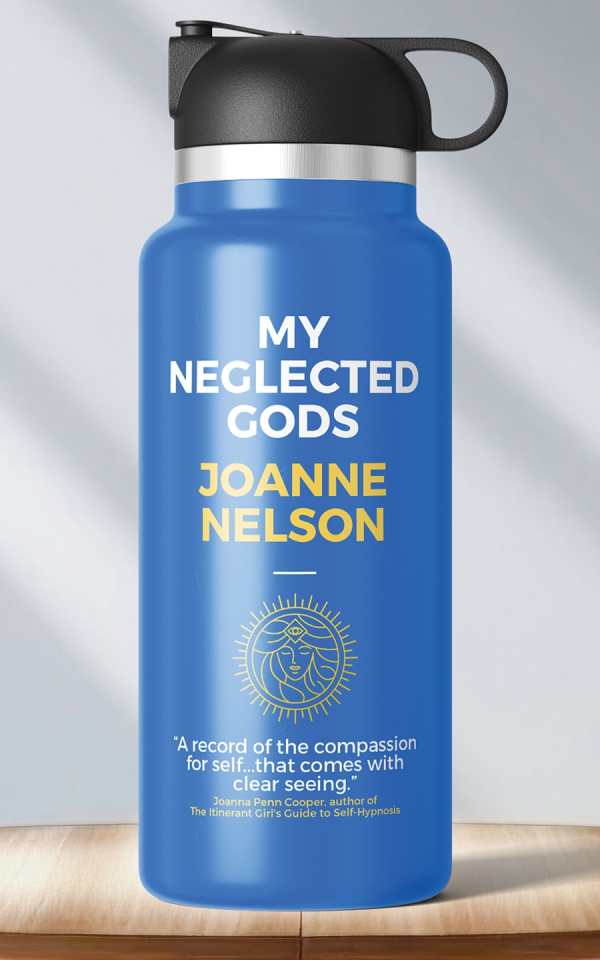My Neglected Gods
Joanne Nelson’s moving memoir-in-microessays treats her life story as mosaic, made up of glistening shards of memory and quotidian events.
These pieces of no more than a few pages delve into the defining experiences of Nelson’s life: her Catholic upbringing, callings to social work and meditation teaching, childrearing, and aging. Moving out of her home of thirty years prompted Nelson to look back at all that took place in it. As the generations turn, patterns repeat, and reminders of comforting normality sustain her through times of upheaval, including COVID-19.
Nelson’s family’s tendency toward addiction emerges in an understated way. Her mother’s dependency is exposed through a wry reference to “our other sibling, a bottle of Pabst.” Her late brother’s drinking precipitated his death. “Still Life,” which features a circular structure, describes this brother’s sordid lifestyle, “or non-life,” through revealing details from Nelson’s final visit to his house: “barefoot, shirt but no pants … Piled mail. The place hazy with cigarette smoke.”
From her earliest recollection (of being in her stroller) to pandemic precautions, the book alternates between tragic and comic modes and employs multiple techniques to vary its perspective. The rundown of three decades of Nelson’s house’s history intercuts official language from a home inspection form with routine and one-off happenings that defined her communal existence. One sentence discloses the ache of a pregnancy loss; pithy lists hint at amusing mistakes: “Made liver. Once.”
Elsewhere, rhetorical questions, imperative phrases, and direct address (as in “To an Old Dog”) modulate the pace. Though Nelson’s totems—in childhood, a monkey sock puppet and her grandmother’s purse—may have changed, her search for legacies, whether positive or harmful, and ordinary blessings is a connecting thread.
The poignant microessays collected in My Neglected Gods locate epiphanies in the everyday.
Reviewed by
Rebecca Foster
Disclosure: This article is not an endorsement, but a review. The publisher of this book provided free copies of the book to have their book reviewed by a professional reviewer. No fee was paid by the publisher for this review. Foreword Reviews only recommends books that we love. Foreword Magazine, Inc. is disclosing this in accordance with the Federal Trade Commission’s 16 CFR, Part 255.

